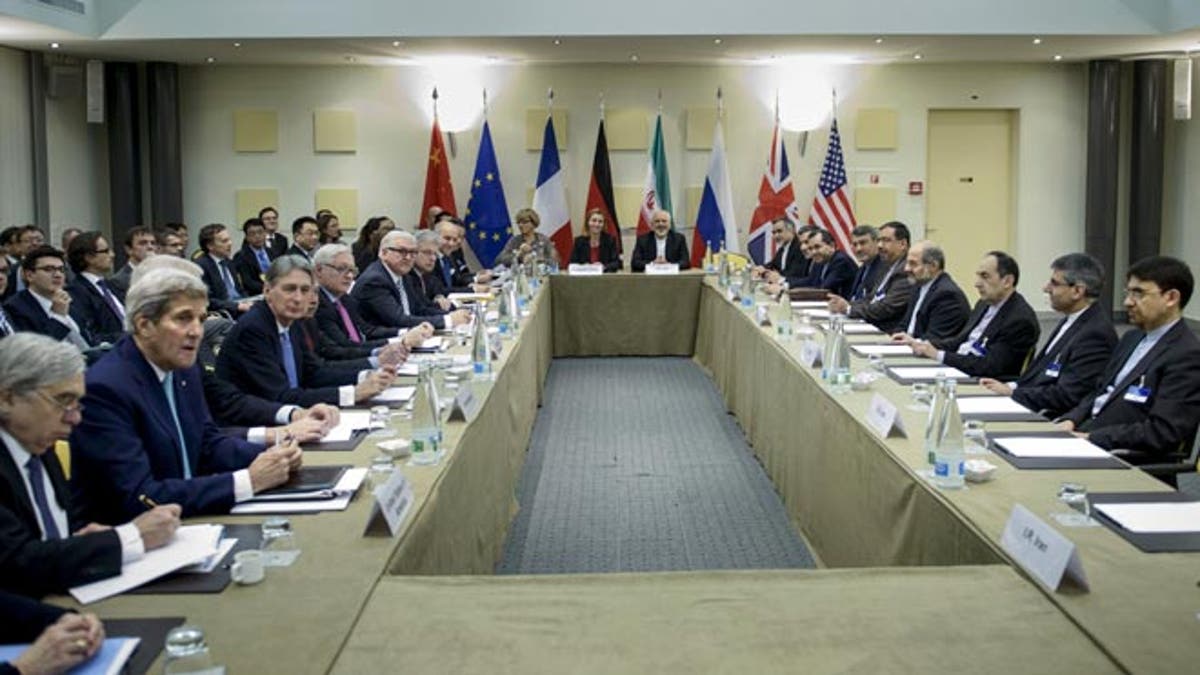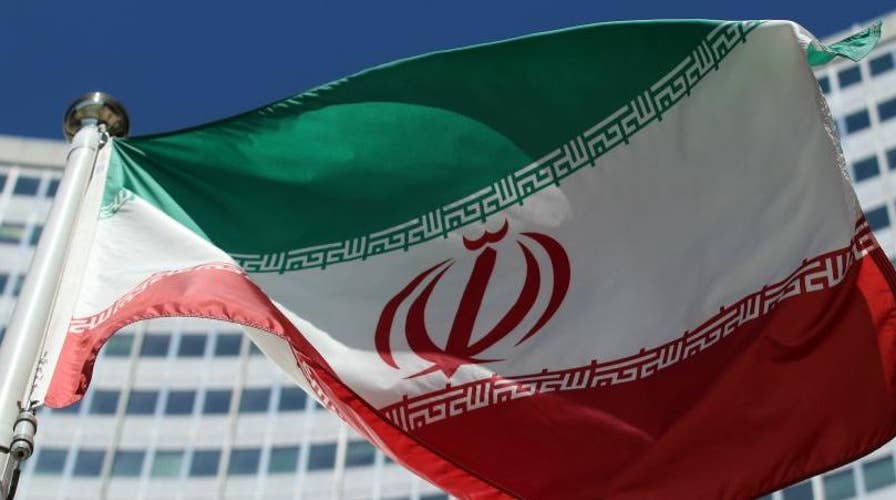President Trump extends sanctions waivers on Iran
Trump administration does not pull out of the Iran nuclear agreement, but announces new targeted penalties; Rich Edson reports from the State Department.
President Trump announced Friday that he will extend waivers for Iran nuclear sanctions, keeping alive the landmark Obama-era deal for at least another few months — but said this is the "last chance" to fix the pact before the U.S. withdraws.
In a stern statement, Trump said he's waiving the sanctions to secure European allies' agreement to address the "terrible flaws" in the 2015 deal negotiated by his predecessor.
“Despite my strong inclination, I have not yet withdrawn the United States from the Iran nuclear deal. Instead, I have outlined two possible paths forward: either fix the deal’s disastrous flaws, or the United States will withdraw,” Trump said.
"This is a last chance," Trump warned. "In the absence of such an agreement, the United States will not again waive sanctions in order to stay in the Iran nuclear deal. And if at any time I judge that such an agreement is not within reach, I will withdraw from the deal immediately."
He added, "No one should doubt my word."

The Obama administration entered the Iran nuclear deal in 2015. (Reuters)
White House officials said Friday that the waivers would be the "last" signed by the president. In addition to the waivers, the Treasury Department rolled out more targeted sanctions on Iran for human rights abuses.
The Trump administration’s proposal to revise the 2015 deal is likely to be met with resistance from European nations.
Foreign ministers of Britain, France and Germany met with Iranian Foreign Minister Mohammad Javad Zarif in Brussels this week and decided they want to “protect” the deal against any decisions that could undermine it.
Trump's demands include: immediate inspections at sites by international inspectors, ensuring Iran “never even comes close” to possessing a nuclear weapon and denying Iran paths to nuclear weapons forever (not 10 years like under current law).
White House officials said Friday that if the president can deny Iran a path to nuclear weapons “forever,” Trump would be “open to remaining in such a modified deal.”
“This would not entail direct negotiations with the Iranians, but would be something the U.S. works out with European partners only,” a White House official said Friday.
Trump called on European countries to join the U.S. in fixing the deal's "significant flaws," but warned that if other nations fail to act, he would "terminate" the deal.
"Those who, for whatever reason, choose not to work with us will be siding with the Iranian regime's nuclear ambitions, and against the people of Iran and the peaceful nations of the world," Trump said.
Trump's decision has been expected since earlier this week. The sanctions that Trump has to waive deal with Iran's central bank and were suspended under the nuclear deal.
Meanwhile, the administration is trying to secure a fix from Congress on the requirement for Trump to address Iran's compliance every three months. In October, Trump decertified the nuclear deal under U.S. law, saying the sanctions relief was disproportionate to Iran's nuclear concessions, and describing the arrangement as contrary to America's national security interests.
The president noted he was “open” to working with Congress on bipartisan legislation regarding Iran, but that any bill he signs must have “four critical components.”
Trying to strike a balance, the Treasury Department’s separate sanctions were designated for 14 individuals and entities in connection with human rights abuses and censorship in Iran, and support to designated Iranian weapons proliferators.
“The United States will not stand by while the Iranian regime continues to engage in human rights abuses and injustice. We are targeting the Iranian regime, including the head of Iran’s judiciary, for its appalling mistreatment of its citizens, including those imprisoned solely for exercising their right to freedom of peaceful assembly, and for censoring its own people as they stand up in protest against their government,” Treasury Secretary Steven Mnuchin said in a statement Friday.
Mnuchin said the Treasury will also target Iran's ballistic missile program and destabilizing activities, which he says Iran "continues to prioritize over the economic well-being of the Iranian people."
Protests have rocked the Islamic Republic in recent weeks, in a replay of the 2009 “Green Movement,” a social media-driven uprising that was quelled by the theocratic rulership.
Iran’s government has blasted the U.S., Saudi Arabia and the United Kingdom for supposedly instigating further protests, calling them “enemies of Iran.”
Iran's Zarif slammed the Trump administration on Twitter.
"Trump's policy & today’s announcement amount to desperate attempts to undermine a solid multilateral agreement, maliciously violating its paras 26, 28 & 29. JCPOA is not renegotiable: rather than repeating tired rhetoric, US must bring itself into full compliance -just like Iran," Zarif said.
Fox News' Kristin Brown and The Associated Press contributed to this report.





